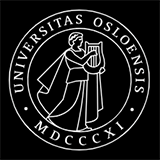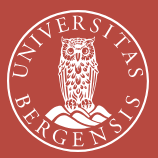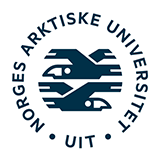Barratt Due Institute of Music (BDIM) is a Norwegian higher education institution focusing on music education and research, located in Oslo. The institute is known for its excellent teaching quality and rich artistic atmosphere, attracting students and teachers from all over the world. Here are some key information about Barratt Due Institute of Music:
Overview
Founded: 1927
Institutional nature: Private non-profit
Main campus location:
Oslo (Oslo), the main campus is located in the Grünerløkka district
History
The Barratt Due Institute of Music was founded in 1927 by Einar Barratt-Due, a famous Norwegian pianist and composer.
The institute started as a small professional music school. Over time, it gradually expanded into a comprehensive music education institution and gained a good reputation internationally.
School Strength
BDIM has about 300 students and about 50 faculty and staff, including many internationally renowned musicians and professors.
Offers undergraduate and master's level courses covering multiple music fields.
Enjoy a good reputation in piano performance, string instruments, woodwind instruments, brass instruments, vocal music, conducting and other fields.
The school cooperates with many music groups, orchestras and music festivals to provide students with internship and performance opportunities.
Educational philosophy
Emphasize personalized teaching and develop personalized learning plans according to each student's strengths and development needs.
Focus on interdisciplinary cooperation, especially the collaboration between different musical styles and techniques.
Attach importance to international education, recruit international students, and provide courses taught in English.
Committed to cultivating musical talents with high-level professional quality and innovative spirit.
Subject settings
Undergraduate courses (Bachelor's degrees):
Piano performance
String instrument performance (such as violin, cello, etc.)
Woodwind instrument performance (such as flute, clarinet, etc.)
Brass instrument performance (such as trumpet, French horn, etc.)
Vocal performance
Conducting
Master's degrees (Master's degrees):
Piano performance
String instrument performance
Woodwind instrument performance
Brass instrument performance
Vocal performance
Conducting
Other related master's courses
English-taught courses:
Most master's programs are taught in English to attract international students.
Special projects
Personalized guidance: BDIM provides one-on-one professional guidance to ensure that every student can receive full attention and support.
Masterclasses and workshops: Internationally renowned musicians are regularly invited to the school to hold masterclasses and workshops, providing students with valuable learning opportunities.
Concerts and performances: The school frequently organizes various concerts and performances to give students more opportunities to practice and show their talents.
Recording facilities: The college has advanced recording studios for students to record and produce personal portfolios.
International cooperation
BDIM actively participates in international exchange programs and has established cooperative relationships with many music schools and higher education institutions around the world.
Provide exchange student programs to promote students' international vision and cultural exchange.
As a member of the Association of European Conservatories (AEC) and other international organizations, BDIM plays an important role in international music education.
Expenses
For EU/EEA students, BDIM is usually free, but a small registration fee is required.
For non-EU/EEA international students, tuition fees vary depending on the major. The specific fees should be consulted directly with the school or visit its official website for the latest information.
In terms of living costs, Oslo is relatively expensive, but you still need to consider the cost of accommodation, food and personal expenses.
Application requirements
Applicants usually need to have a high school diploma or equivalent, and may need to complete certain prerequisite courses.
For master's programs, a bachelor's degree in a related field is usually required.
You need to pass an entrance exam or interview to demonstrate your interest in the chosen major and your ability to work in a related career.
The English proficiency requirement is usually B2 level (according to the Common European Framework of Reference for Languages CEFR), and some majors may require higher levels.
-

OsloMet - Oslo Metropolitan University
-

University of Oslo
-

University of South-Eastern Norway
-

University of Inland Norway
-

Nord University
-

University of Bergen
-

Norwegian University of Life Sciences
-

University of Stavanger
-

University of Agder
-

University of Tromsø
-

Mesoamerican University
-

Istmo University
-

Mariano Galvez University of Guatemala
-

Regional University of Guatemala
-

Galileo University
-

Francisco Marroquín University
-

Rafael Landívar University
-

University of the Valley of Guatemala
-

University of San Carlos of Guatemala
-

Technological Institute of Tlaxcala Plateau
-

Golfo University
-

Technological University of South Sonora
-

Technological University of Huejotzingo
-

Tizimín Institute of Technology
-

Chilpancingo Institute of Technology

